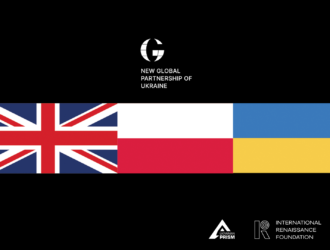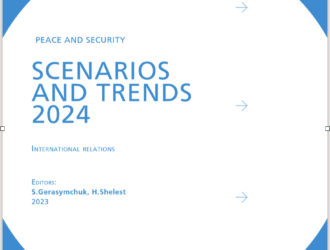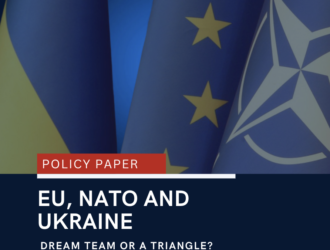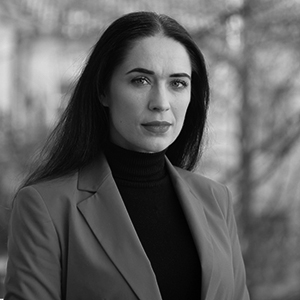Hanna Shelest
Security Studies Program Director
Subscribe for Newsletter
Dr. Hanna Shelest is the Security Studies Program Director
Editor-in-Chief of UA: Ukraine Analytica and Head of the Board of the NGO “Promotion of Intercultural Cooperation”. Prior to this, she had served for more than 10 years as a Senior Researcher at the National Institute for Strategic Studies under the President of Ukraine, Odessa Branch. In 2014 Dr. Shelest served as a Visiting Research Fellow at the NATO Defense College in Rome. Previously she had experience in PR and lobbying for government and business, as well as teaching at Odessa National University.
She has more than 50 academic and more than 100 articles in media published worldwide. She is a regular presenter at the international conferences and commenter for the media.
Dr. Shelest is a Rotary Peace Fellow 2010, Black Sea Young Reformer 2011, John Smith Fellow 2012, Marshall Memorial Fellow 2016, TUBITAK Visiting Research Fellow 2018, Think Visegrad Fellow 2019. She was recognized as “40 under 40 Ukrainian Emerging Leader 2013” by the US-Ukraine Foundation.
Her main research interests are:
- conflicts resolution and mediation,
- security and cooperation, especially in the Wider Black Sea Region and the Middle East,
- foreign policy of Ukraine,
- NATO
Research
EIGHT POINTS FROM THE UKRAINIAN EXPERT COMMUNITY ON THE NATO STRATEGIC CONCEPT 2030 STRATEGIC PARTNERSHIP WITHOUT A STRATEGY (Українська) ТРАНСАТЛАНТИЧНІ ВІДНОСИНИ: ТРЕНДИ ТА СЦЕНАРІЇ МІЖНАРОДНОЇ ПОЛІТИКИ 2021 КРІЗЬ ПРИЗМУ УКРАЇНСЬКИХ ІНТЕРЕСІВ (Українська) Миротворість під час війни. Перспективи миротворчої діяльності України Ukraine’s Security Options after the NATO Warsaw SummitMedia
The trilateral initiative: How Britain, Poland and Ukraine can shape a post-war Europe Global trends 2024: NEW SCENARIOS FOR THE GLOBAL SECURITY ORDER EU, NATO and Ukraine: Dream Team or a Triangle? IS UKRAINE READY FOR A FEMINIST FOREIGN POLICY? AFTER MADRID: NATO, ASPIRANTS AND ENHANCED OPPORTUNITY PARTNERSRecent Publications

On 17th February 2022, Poland, the United Kingdom (UK) and Ukraine agreed to establish a memorandum of understanding to facilitate closer and more structured cooperation between the three countries. Four initial ideas were identified for deeper collaboration: cyber and energy security, countering disinformation, and support for the Crimea Platform.

The 2024 scenarios for the global security order will be shaped by a significant number of variables driven both by domestic developments in the key actors and their foreign policy choices.

As soon as the EU started to express the will to play a role in security and defence matters (late 1990s), the question was posed of its relationship with NATO as the main defence actor in Europe. Since then, questions have been posed in different countries about what the EU would bring that NATO does not already do.



